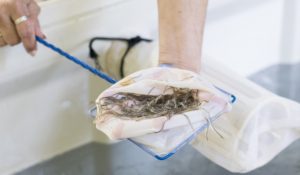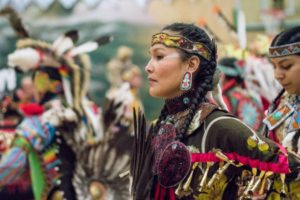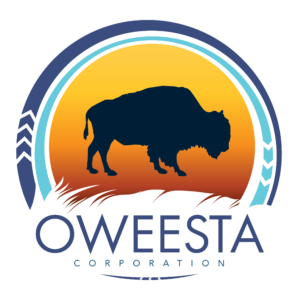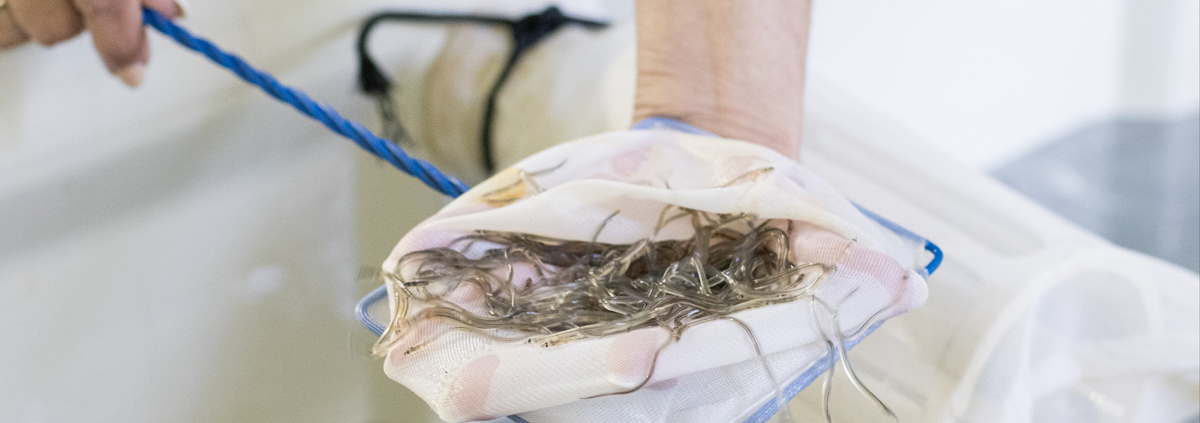Decolonizing Food Systems In Maine
“We sealed the eel deal,” Tawny Wilson, Loan Officer at NDN Fund shared a joke popular within the NDN team. After three years of working closely with the Indian Township Enterprise (ITE), the economic development arm of the Passamaquoddy Tribe, NDN Fund and ITE closed out a $1.5M loan to support a joint venture in the eel aquaculture business.

Elvers (baby eels) from the eel aquaculture venture by the Passamaquoddy Tribe of Indian Township and their partner,
American Unagi, in Maine. Photo Courtesy of NDN Collective
Eels have been a traditional food source of the Passamaquoddy Tribe of Maine for centuries and more than half of community members harvest baby eels, called elvers, each spring. However, the community has faced financial exploitation over their harvests – harvesters would regularly be paid half of the market value for their catch, only to see the price double.
They also faced challenges in integrating themselves in the greater eel value chain despite centuries of expertise. Most eels are largely caught as elvers and mature in aquaponic centers. Due to the heavy regulations on commercial eels in the US, domestic elvers are shipped to Asia to grow and then sent back to the US.
The Indian Township Enterprise saw an opportunity to buy equity into American Unagi, a Waldoboro, Maine-based company and the only eel distribution aquaponic center in the US. As equity stakeholders, the Tribe could take back control of their ancestral food system. They could create a market for their annual eel harvest of 700 pounds, create new jobs in their rural community, and price their harvest fairly, stabilizing fishery values to over $4 million per year for Maine Tribes.
Despite the promising joint venture, ITE found it difficult to acquire the capital needed to buy into American Unagi until they met NDN Fund, an emerging Native Community Development Financial Institution (CDFI) and the impact investing and lending arm of the NDN Collective, an Indigenous-led nonprofit organization.
“The power of NDN Collective is helping to change things. It’s more than helping to create a business plan or deploying capital – that’s easy. Our work is about managing relationships,” said Tawny Wilson.

Native communities and causes are
disproportionally underrepresented in
philanthrophy, having only received an
average of 0.4% of total funding from large
U.S. foundations between 2002-2016.
Source: Investing in Native Communities: Philanthropic
Funding for Native American Communities and Causes,
Native Americans in Philanthropy and Candid
NDN Collective’s mission to defend, develop, and decolonize permeates throughout all their work, including the decolonization of lending. Most traditional lenders evaluate borrowers’ creditworthiness against the five C’s of credit – character, capacity, capital, collateral, and conditions. CDFIs usually add a sixth C for community. Many Tribal communities and aspiring Native entrepreneurs are unable to fit into the mainstream mold of an ideal borrower, and subsequently do not qualify for initial seed funding.
Instead, NDN Fund measures borrowers through the lens of regeneration and self-determination by evaluating the six R’s of resilient financing – relationship, reciprocity, reach, resources, reputation, and the Resilience Impact Assessment (RIA) intake form.
The seed funding the Passamaquoddy Tribe received from NDN Fund proved to be invaluable. Beyond buying their initial equity stake in American Unagi, the Indian Township Enterprise is SBA 88 certified, pursuing federal contracts, and entered their next phase of funding to develop, build, and operate Maine’s 2nd eel aquaculture business: Wabanaki Unagi.
(This story was originally featured in Oweesta’s 2021 Annual Report.)






